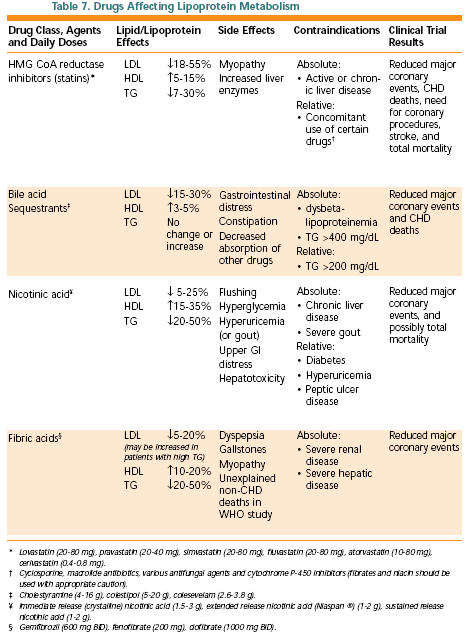Treatments for hyperlipidemia include a change in lifestyle and medications. While a healthy diet and physical activity can lower lipid levels, a change in medication can help the condition. These drugs are commonly prescribed for patients with elevated cholesterol and triglycerides. Examples of these medications include statins, fibrates, ezetimibe, colesevelam, and torcetrapib. Because high triglycerides can have negative health consequences, a treatment is vital to reduce the risk of developing a fatal cardiovascular condition.
The first step in treating hyperlipidemia is to understand what causes it. While cholesterol is a waxy substance in the body, it can come from many different sources. Despite its link to obesity, hyperlipidemia does not typically run in families. People who have the condition have an increased risk of suffering from a heart attack, even as they are still in their early 20s or 30s. Although hyperlipidemia can be life threatening, most people do not notice any symptoms until they develop an attack.
There are lifestyle changes that can be taken to reduce the risk of hyperlipidemia. Smoking and regular exercise can help control high cholesterol as well as maintain a healthy body weight. In addition, a heart-healthy diet low in saturated fat, trans fat, and dietary cholesterol is recommended. To reduce your risk of cardiovascular complications, you should eat a diet rich in fruits, vegetables, and whole grains. It is important to limit processed foods and carbohydrates and choose high quality proteins such as fish and nuts. Consuming plenty of omega-3 fatty acids may reduce your risk of developing vascular disease.
Various lifestyle changes can help prevent and treat hyperlipidemia. In addition to regular exercise, it is recommended that you stop smoking and maintain a healthy body weight. In addition to avoiding harmful saturated fats, dietary cholesterol and its absorption are critical to a healthy heart. Your doctor can recommend the right medications and lifestyle for you. Your doctor can also help you determine a healthy diet. If you have high cholesterol, you should avoid high levels of processed foods and avoid fatty foods. Finally, you should try omega-3 oils.
Before your doctor can prescribe a drug for hyperlipidemia, you must first check your cholesterol levels. Your blood tests will show if your cholesterol level is too high or too low. Your doctor may require you to fast for 8-12 hours before drawing blood. A safe cholesterol level depends on your medical history, current health problems, and your age. By changing your lifestyle, you can lower your cholesterol levels. Site SGA can also recommend hyperlipidemia medications to help you manage your condition.

Among the various drugs for hyperlipidemia, fibric acid derivatives are the most effective in lowering triglyceride and VLDL levels. These medications are commonly prescribed for people with hypertriglyceridemia. Most of these medications are taken daily and only work if you are not allergic to any of their ingredients. The best therapy is the one that works for you and is safe for your body.
Although a fasting period is not required for patients with high cholesterol levels, it is necessary if the cholesterol level is too high. If your doctor is concerned about your cholesterol levels, you may need to fast for eight to twelve hours before drawing blood. Your doctor may also prescribe medication for hyperlipidemia depending on your general health. If you have heart problems, you can read the articles on the author's health site จูมสี เสรีโยธิน for more information on treating hyperlipidemia.
Apart from medications, lifestyle changes can also be used to treat hyperlipidemia. These changes will help reduce the risk of complications while increasing the effectiveness of the medication. For example, cutting down on saturated and trans fats is an important part of the diet. The amount of saturated and trans fats in the diet should be limited, and monounsaturated fats should be used in cooking. A diet rich in monounsaturated fats will also improve the effects of medications.
While medications for hyperlipidemia lower total cholesterol and triglycerides, they are not the only way to treat the condition. Your doctor may also prescribe some lifestyle changes to improve your lipid levels. If the levels are too high, your doctor may prescribe medication to help lower your cholesterol levels. If you have high cholesterol, your doctor may recommend dietary supplementation.

